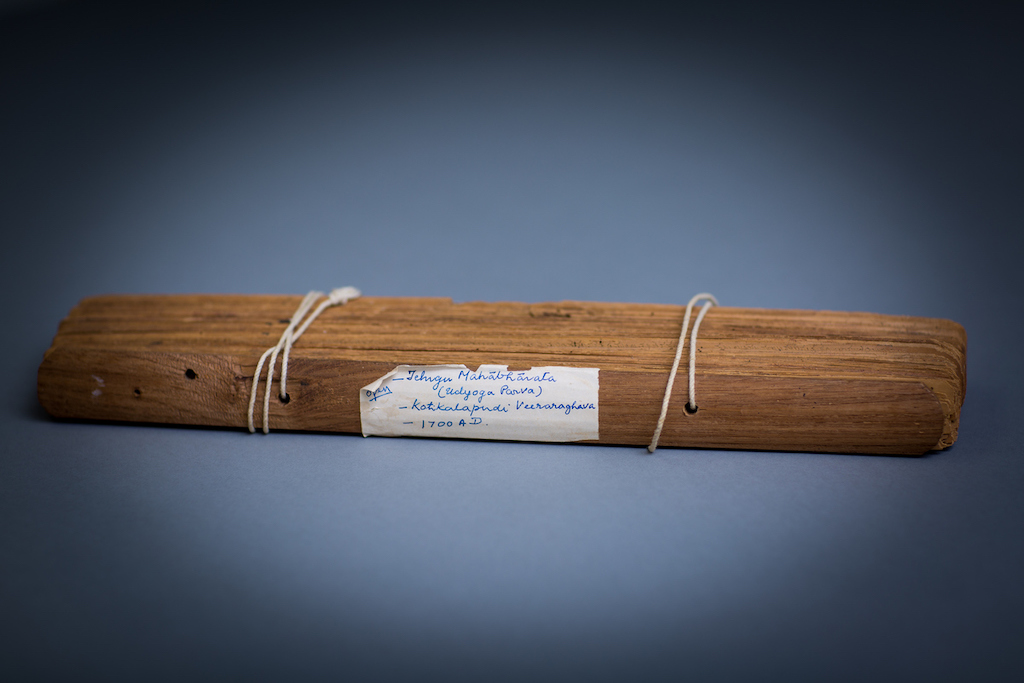Mahābhārata
The Mahābhārata is one of two major epics from India. It is notable as an original composition in Sanskrit and its subsequent re-imaginings in India’s vernacular languages, including Telugu.
This epic poem details the Kurukṣetra War and other shorter narratives including the story of Rāmāyaṇa. The work was developed over a long period of time, dating as early as approximately 400 BCE and coming to its final form in Sanskrit around 400 CE. Three famous poets retold the Mahābhārata into Telugu over several centuries, initiated by Nannaya in the 11th century and completed by Tikkana (13th century) and Errapragda (14th century).
Emory’s Mahābhārata
The manuscript captures the poetry of a lesser known poet rather than the work of the Kavitraya, the famous trinity of Telugu poets who are the authors of the canonical Āndhra Mahābhāratamu. The particular edition of the Telugu Mahābhārata represented by this manuscript is a separate endeavor by the poet Koṭikalapūḍi Vīrarāghava (1663-1712). The Mahābhārata contains 18 books (or parvas), including the fifth, Udyōga parva (The Book of Effort). The Udyōga parva covers the efforts to engender peace among warring brothers, the Kauravas and the Pandavas.
Visit the Emory FindingAids Database.
Preserving the Telugu Manuscript
Material
Emory Libraries recently acquired the Kōṭikalapūḍi Vīrarāghavakavi (1663-1712) manuscript. It is the first subject in The Life of An Item series. This work was written as a palm leaf manuscript, and dried palm leaves were often used as a support material for writing in South Asia. The manuscript consists of 143 palm leaves. Each leaf is about 35mm x 430mm and is inscribed on both sides. There are also two holes in each leaf, which allow the leaves to be bound together with a cord laced through the two holes, encasing the manuscript with wooden ends. Rounded scripts such as Telugu were used to inscribe palm leaf manuscripts, because angular letters split the delicate leaves.
Visit the following Emory Libraries Scholar Blog for more information on preserving the Telugu Manuscript.
Donor Information
Source
Gift of Velcheru Narayana Rao, 2018.
Custodial History
Given to V. Narayana Rao by Dr. and Mrs. Gopala Rao of Richmond, Virginia.
Physical Description
Creator: Vīrarāghavakavi, Kōṭikalapūḍi, 1663-1712.
Title: Telugu Mahābhārata. Udyōga Parva (The Book of Effort), circa 1700.
Call Number: Manuscript Collection No. 444.
Extent: 0.25 cubic feet (1 box).
Abstract: One palm-leaf manuscript of the Telugu Mahābhārata, Udyōga Parva (The Book of Effort), circa 1700.
Language: Materials entirely in Telugu.
Emory Libraries
Owner
Owned by Robert W. Woodruff Library.
Location
Housed at Pitts Theology Library.

